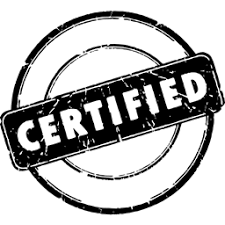 A literature review serves as the cornerstone of any substantial project. It not only showcases a researcher's in-depth understanding of existing scholarship but also establishes the credibility and relevance of your work. However, amidst the comprehensive analysis and insightful discussions that a literature review entails, one crucial aspect often goes unnoticed the accurate and consistent editing of references. Referencing is not a mere formality; it is the backbone of any academic work, lending it authenticity and integrity. An improperly formatted or inaccurately cited reference can tarnish the credibility of an entire research paper, diminishing its impact and scholarly value. To address this concern, we offer specialized expert help to edit references in a lit review, accompanied by expert guidance. Our team of seasoned academic editors understands the meticulous nature of reference editing, and they are committed to ensuring that every citation in your literature review adheres to the highest standards of accuracy and consistency. Whether you are grappling with APA, MLA, Chicago, or any other citation style, our experts possess an in-depth knowledge of these formats, making sure your references are flawless. In this era of information abundance, we can alleviate the burden of reference editing, allowing you to focus on the core of your research. With our help and expert guidance, your literature review will not only be a testament to your academic prowess but also a testament to our dedication to perfection in scholarly writing. We offer reliable editing help for chapter II references.
A literature review serves as the cornerstone of any substantial project. It not only showcases a researcher's in-depth understanding of existing scholarship but also establishes the credibility and relevance of your work. However, amidst the comprehensive analysis and insightful discussions that a literature review entails, one crucial aspect often goes unnoticed the accurate and consistent editing of references. Referencing is not a mere formality; it is the backbone of any academic work, lending it authenticity and integrity. An improperly formatted or inaccurately cited reference can tarnish the credibility of an entire research paper, diminishing its impact and scholarly value. To address this concern, we offer specialized expert help to edit references in a lit review, accompanied by expert guidance. Our team of seasoned academic editors understands the meticulous nature of reference editing, and they are committed to ensuring that every citation in your literature review adheres to the highest standards of accuracy and consistency. Whether you are grappling with APA, MLA, Chicago, or any other citation style, our experts possess an in-depth knowledge of these formats, making sure your references are flawless. In this era of information abundance, we can alleviate the burden of reference editing, allowing you to focus on the core of your research. With our help and expert guidance, your literature review will not only be a testament to your academic prowess but also a testament to our dedication to perfection in scholarly writing. We offer reliable editing help for chapter II references.
The Importance of Correct & Accurate References in a Literature Review
Correct and accurate references are paramount in a literature review as they serve as the foundation of academic integrity, ensuring that the ideas and arguments presented are built upon a solid and credible base. Accurate references demonstrate a thorough understanding of existing research, validating the reviewer's expertise in the subject matter. More so, references provide readers with the means to delve deeper into the sources cited, facilitating further exploration and verification of the claims made. This promotes transparency and accountability in academic discourse, as others can assess the accuracy of the information presented and trace the evolution of ideas within a given field. Additionally, precise referencing enhances the overall quality and reliability of the literature review. It enables researchers to distinguish between established, reputable sources, and less credible ones, thereby enhancing the review's credibility. Accurate references also make it easier for readers to replicate the study or build upon the review's findings, contributing to the advancement of knowledge in the respective field. Relevantly, correct and accurate references are essential in a literature review as they uphold academic integrity, facilitate deeper exploration of the subject, and enhance the overall quality and credibility of the work. They are the backbone of rigorous scholarship and scholarly communication.
Why Seek Our Expert Help to Edit References in Your Chapter 2?
Seeking our literature review references editing help is crucial for the right reasons. Firstly, it ensures the accuracy and credibility of your academic work. Our editors can meticulously cross-reference your citations with the original sources, eliminating errors that might lead to academic misconduct or undermine your research's integrity. Our professional editing expertise enhances the overall quality and coherence of your literature review. We can identify inconsistencies in formatting, style, and citation methods, making your paper more polished and reader-friendly. This can significantly improve your paper's chances of acceptance in academic journals or garnering higher grades in coursework. Furthermore, our expert editors possess an extensive understanding of various citation styles (e.g., APA, MLA, Chicago), which is essential for maintaining consistency throughout your literature review. We can correct citation elements such as punctuation, capitalization, italics, and page numbering, ensuring that your references conform to the chosen style guide. We can save you valuable time and reduce the stress associated with the meticulous task of reference checking. This allows you to focus on refining your research content and analysis, ultimately leading to a more impactful and well-received literature review. Seeking our help is a wise investment that contributes to the overall success of your academic endeavors.
Where Do You Get References for a Literature Review?
In preparing a review, gathering relevant references is a crucial step. Here's how to obtain suitable sources for your literature review:
- Academic Databases: Start by searching academic databases such as PubMed, Google Scholar, JSTOR, and IEEE Xplore. These platforms host a wide range of scholarly articles, books, conference papers, and theses. Use specific keywords and filters to refine your search.
- Library Catalogs: Explore your university or local library's catalogs. They provide access to a wealth of physical and digital resources. Librarians can also assist in finding relevant materials.
- Citation Chaining: Review the references cited in articles and books you've already found. This process, known as citation chaining, can lead you to older, foundational works in your field.
- Reference Lists: Look for literature reviews or meta-analyses on your topic. They include comprehensive reference lists that can serve as a goldmine for sources.
- Professional Organizations: Visit the websites of professional organizations related to your field of study. They may offer publications, reports, and white papers that can be valuable sources.
- Experts in the Field: Contact our experts in your field for recommendations. Attend conferences and workshops to establish connections and gain insights into recent research.
- Government and NGO Websites: For topics with policy or practical implications, government websites, and non-governmental organizations (NGOs) often publish reports and studies.
- Online Forums and Discussion Boards: Occasionally, valuable references can be found in online discussions, forums, or preprint archives.
 The meticulous process of writing a literature review demands not only a deep understanding of the subject matter but also a keen eye for detail when it comes to referencing and citation styles. The importance of accurate and consistent references cannot be overstated, as they not only uphold the integrity of your work but also provide a solid foundation for readers to explore the sources you have consulted. Our expert guidance comes with its set of advantages. We ensure that your references conform to the specific style guide required by your institution or publication, be it APA, MLA, Chicago, or any other. This eliminates the risk of unintentional errors and inconsistencies that can undermine the credibility of your research. We equally help you to maintain coherence and clarity in your references, enhancing the overall readability of your literature review. It ensures that your citations are not only technically correct but also seamlessly integrated into the narrative of your work. Engaging our experts in reference editing saves you precious time and relieves the stress associated with the often-tedious task of managing citations. This enables you to focus your energy on the core aspects of your research. Our services are relevant in ensuring academic rigor, clarity, and the overall impact of your work.
The meticulous process of writing a literature review demands not only a deep understanding of the subject matter but also a keen eye for detail when it comes to referencing and citation styles. The importance of accurate and consistent references cannot be overstated, as they not only uphold the integrity of your work but also provide a solid foundation for readers to explore the sources you have consulted. Our expert guidance comes with its set of advantages. We ensure that your references conform to the specific style guide required by your institution or publication, be it APA, MLA, Chicago, or any other. This eliminates the risk of unintentional errors and inconsistencies that can undermine the credibility of your research. We equally help you to maintain coherence and clarity in your references, enhancing the overall readability of your literature review. It ensures that your citations are not only technically correct but also seamlessly integrated into the narrative of your work. Engaging our experts in reference editing saves you precious time and relieves the stress associated with the often-tedious task of managing citations. This enables you to focus your energy on the core aspects of your research. Our services are relevant in ensuring academic rigor, clarity, and the overall impact of your work.
Online Chapter Two References Editors | Reliable Editing Help
 With the increasing reliance on online resources and a multitude of citation styles, it's crucial to ensure that your references are not only comprehensive but also conform to the stringent standards of academic integrity. This is where we step in as your trusted partner in refining your scholarly work. Our dedicated team of experienced editors understands the significance of a well-crafted chapter in your project, and we specialize in precisely one aspect: editing and perfecting your references. Whether you are grappling with APA, MLA, Chicago, or any other citation style, we have the expertise to ensure that every comma, semicolon, and italicized word aligns flawlessly with your chosen style guide. We take pride in our commitment to excellence. Our meticulous approach guarantees that your references will be accurate, consistent, and reflect the highest standards of academic citation. We recognize that every project is unique, and our editors are adept at tailoring their expertise to your specific requirements, regardless of your field of study. We provide quality Chapter II references editing assistance. We can lead the way on this journey toward scholarly excellence, where your references will shine as a testament to your dedication to quality and precision. Trust us to elevate the quality of your work and propel you toward academic success.
With the increasing reliance on online resources and a multitude of citation styles, it's crucial to ensure that your references are not only comprehensive but also conform to the stringent standards of academic integrity. This is where we step in as your trusted partner in refining your scholarly work. Our dedicated team of experienced editors understands the significance of a well-crafted chapter in your project, and we specialize in precisely one aspect: editing and perfecting your references. Whether you are grappling with APA, MLA, Chicago, or any other citation style, we have the expertise to ensure that every comma, semicolon, and italicized word aligns flawlessly with your chosen style guide. We take pride in our commitment to excellence. Our meticulous approach guarantees that your references will be accurate, consistent, and reflect the highest standards of academic citation. We recognize that every project is unique, and our editors are adept at tailoring their expertise to your specific requirements, regardless of your field of study. We provide quality Chapter II references editing assistance. We can lead the way on this journey toward scholarly excellence, where your references will shine as a testament to your dedication to quality and precision. Trust us to elevate the quality of your work and propel you toward academic success.
Common mistakes to avoid when editing references in Chapter 2
When editing references in Chapter 2 of an academic or research paper, it's crucial to avoid common mistakes to maintain the integrity and credibility of your work. Here are some key errors to steer clear of:
- Inaccurate citations: Ensure that every citation in Chapter 2 corresponds accurately to the source material you're referencing. Verify publication dates, author names, and page numbers to prevent misrepresentation.
- Missing references: Double-check that all the sources you mention in the text have corresponding entries in the reference list, and vice versa. Missing references can lead to confusion and weaken your argument.
- Inconsistent formatting: Maintain a consistent citation style throughout Chapter 2. Whether you're using APA, MLA, Chicago, or another style guide, adherence to a uniform format is essential.
- Incorrect citation style: Be certain you're using the appropriate citation style for your field or publication. Mixing styles can confuse readers and potentially damage the paper's credibility.
- Plagiarism: Avoid copying content from sources without proper citation. Plagiarism is a serious offense that can result in academic or professional consequences.
- Overreliance on a single source: Chapter 2 should demonstrate a breadth of research. Over-referencing one source or relying heavily on a single study can weaken the paper's overall argument.
- Unclear or incomplete references: Ensure that each reference provides enough information for readers to locate the source easily. Pay attention to the correct format for books, articles, websites, and other types of sources.
- Failure to update references: If your research spans several years, make sure to update older references with more recent sources, especially if there have been significant developments in your field.
- Not cross-referencing: When referencing multiple sources on a related topic, cross-reference them in the text to demonstrate the existing literature's cohesion and relevance.
- Not proofreading: Lastly, review your references meticulously for typos, punctuation errors, and other formatting mistakes that can undermine the professionalism of your Chapter 2.
Tips our experts offer to edit references in the second chapter of a project
During the editing process, our online chapter two references editors will recommend a meticulous approach to ensure accuracy and consistency. We will offer the best tips to make the process easy and successful. Double-check that all in-text citations correspond to their respective entries in the reference list. Ensure that the formatting style (e.g., APA, MLA, Chicago) is consistent throughout the chapter. Pay special attention to the author's names, publication years, and titles, ensuring they match the reference list precisely. Verify that page numbers are correctly cited for direct quotations. Additionally, scrutinize the completeness of each reference entry, including all required information such as author(s), publication date, title, and source details. Cross-reference your citations with the primary sources to avoid any inaccuracies. More so, consider using reference management software like EndNote or Zotero to streamline the editing process, as they can automatically generate and format citations and references according to your chosen style guide. If you follow these meticulous editing steps, you can ensure that your references in the second chapter of your project are precise, consistent, and meet the highest academic standards.
Citation style to follow when editing references in Chapter II
When editing references in Chapter II of your academic paper, it's crucial to adhere to a consistent citation style to maintain clarity and academic integrity. The choice of citation style depends on your academic discipline or the guidelines provided by your institution or publisher. Here's a brief description of two commonly used citation styles:
- APA (American Psychological Association) Style: APA style is widely used in the social sciences. It emphasizes author-date citations within the text, with corresponding references listed alphabetically at the end of the chapter or paper. In-text citations include the author's last name and the publication year (e.g., Smith, 2020). The reference list provides detailed information about each source, following a specific format for books, articles, websites, and other types of materials.
- MLA (Modern Language Association) Style: MLA style is commonly used in the humanities. It uses in-text citations that include the author's last name and page number (e.g., Smith 45). The Works Cited page, located at the end of the chapter or paper, lists full source details for all references, arranged alphabetically by the author's last name.
 The role of our editors is undeniably vital in the realm of academic writing and research. As we traverse the digital age, where information flows ceaselessly, the demand for precision and accuracy in scholarly work is paramount. Our services have emerged as a beacon of reliability in this ever-evolving landscape. Our editors bring a wealth of experience and expertise to the table, ensuring that your academic references and citations are impeccable. They meticulously comb through your work, cross-referencing sources, formatting citations, and verifying the consistency and coherence of your references. In doing so, they not only elevate the quality of your research but also save you precious time and energy that can be redirected toward the core of your study. Our experts adhere to established citation styles, stay current with evolving citation guidelines, and guarantee the authenticity and legitimacy of your references. This unwavering dedication to upholding the highest standards of academic excellence sets them apart as indispensable allies in your scholarly journey. In the digital age, where information overload and plagiarism pitfalls lurk at every corner, our expert reference editors emerge as invaluable partners. They not only polish your work to perfection but also empower you with the confidence that your academic integrity remains unassailable.
The role of our editors is undeniably vital in the realm of academic writing and research. As we traverse the digital age, where information flows ceaselessly, the demand for precision and accuracy in scholarly work is paramount. Our services have emerged as a beacon of reliability in this ever-evolving landscape. Our editors bring a wealth of experience and expertise to the table, ensuring that your academic references and citations are impeccable. They meticulously comb through your work, cross-referencing sources, formatting citations, and verifying the consistency and coherence of your references. In doing so, they not only elevate the quality of your research but also save you precious time and energy that can be redirected toward the core of your study. Our experts adhere to established citation styles, stay current with evolving citation guidelines, and guarantee the authenticity and legitimacy of your references. This unwavering dedication to upholding the highest standards of academic excellence sets them apart as indispensable allies in your scholarly journey. In the digital age, where information overload and plagiarism pitfalls lurk at every corner, our expert reference editors emerge as invaluable partners. They not only polish your work to perfection but also empower you with the confidence that your academic integrity remains unassailable.



 In the academic realm, a well-written literature review is the cornerstone of rigorous research. It serves as the intellectual framework upon which scholarly inquiries are built, providing a comprehensive overview of existing knowledge on a particular subject. Within this intricate tapestry of citations and references, the accuracy and coherence of your references play a pivotal role. That's where our
In the academic realm, a well-written literature review is the cornerstone of rigorous research. It serves as the intellectual framework upon which scholarly inquiries are built, providing a comprehensive overview of existing knowledge on a particular subject. Within this intricate tapestry of citations and references, the accuracy and coherence of your references play a pivotal role. That's where our  Chapter 2 serves as the backbone of any research endeavor, providing a solid foundation upon which new insights and discoveries can be built. One crucial aspect of a literature review is the meticulous editing of references and citations, a task that can often be daunting and time-consuming. This is where online help for editing references in a literature review becomes relevant. We offer support to researchers seeking to ensure the accuracy, consistency, and compliance of their references with various citation styles such as APA, MLA, Chicago, and more. We save invaluable time, allowing researchers to focus on the substance of their work rather than the technicalities of formatting. Moreover, we are not limited by geographical boundaries, making them accessible to researchers worldwide. Whether you are a student, an early-career researcher, or a seasoned academic, these online tools can elevate the quality and professionalism of your literature review. The assistance we provide in editing references for a literature review is a testament to the adaptability and convenience that the digital age brings to academia. By embracing these tools, you empower yourself to create literature reviews that are not only academically rigorous but also aesthetically impeccable. We remain invaluable allies in our pursuit of knowledge and excellence.
Chapter 2 serves as the backbone of any research endeavor, providing a solid foundation upon which new insights and discoveries can be built. One crucial aspect of a literature review is the meticulous editing of references and citations, a task that can often be daunting and time-consuming. This is where online help for editing references in a literature review becomes relevant. We offer support to researchers seeking to ensure the accuracy, consistency, and compliance of their references with various citation styles such as APA, MLA, Chicago, and more. We save invaluable time, allowing researchers to focus on the substance of their work rather than the technicalities of formatting. Moreover, we are not limited by geographical boundaries, making them accessible to researchers worldwide. Whether you are a student, an early-career researcher, or a seasoned academic, these online tools can elevate the quality and professionalism of your literature review. The assistance we provide in editing references for a literature review is a testament to the adaptability and convenience that the digital age brings to academia. By embracing these tools, you empower yourself to create literature reviews that are not only academically rigorous but also aesthetically impeccable. We remain invaluable allies in our pursuit of knowledge and excellence.